By Carol Sherman
Books
 Winging It
Winging ItErica Abeel’s “Wild Girls” follows three friends who meet at Foxleigh — an amalgam of Barnard and Smith — as they negotiate the changing landscape of a woman’s place in America from the 1950s through the early 2000s.
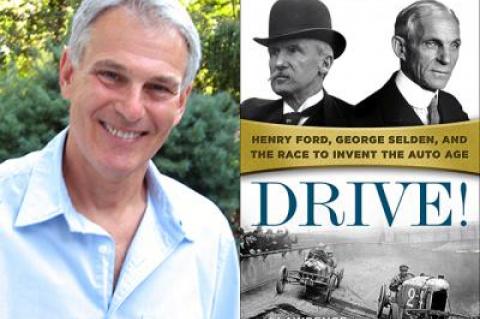 Drive, They Said
Drive, They SaidLawrence Goldstone has come down to earth. Following his 2014 book, “Birdmen,” a history of early aviation, he has now presented us with “Drive! Henry Ford, George Selden, and the Race to Invent the Auto Age.”
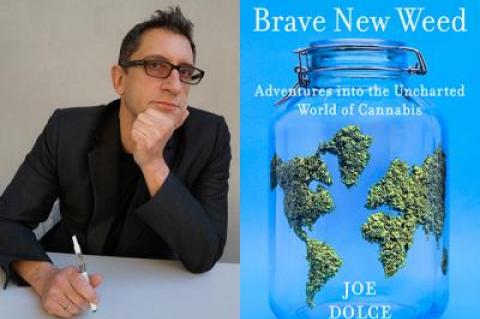 Joe Dolce's Adventures in Cannabis
Joe Dolce's Adventures in CannabisJoe Dolce is not a stoner. The author of “Brave New Weed: Adventures Into the Uncharted World of Cannabis,” he makes a point of that, but also has no hesitance in “piercing the veil” and talking from a user’s as well as a researcher’s point of view about pot.
 A Tale of Two Princesses
A Tale of Two PrincessesNew children’s books explore a West African girl's dreams of a time she won't have to tote water from a far-off well, lessons in gratitude at school, the adventures of a destructive dog, and a Christmas tree that avoids the ax to live another day.
Janet Lee Berg's first novel involves a father in Nazi-occupied Holland who trades a painting by Rembrandt for his daughter’s safety and that of 25 other Jews.
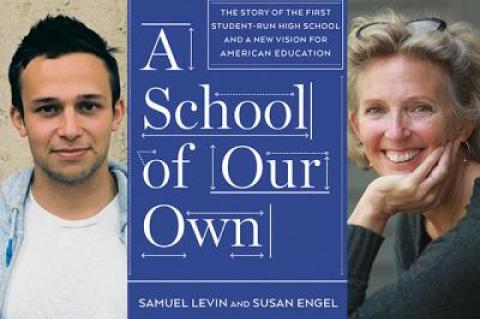 Student Takeover
Student TakeoverA mother-son writing duo? Possible treacle alert. A teenager who started his own school? Back-patting danger. But this book? No need for alarm, it's thought-provoking, even moving.
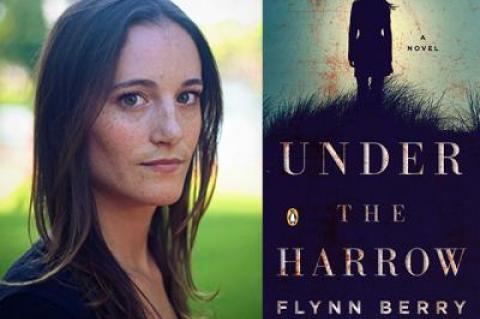 Between Devotion and Betrayal
Between Devotion and BetrayalA thriller is supposed to thrill and this one does, but not with the usual car chases or shootouts or otherworldly phenomena, instead with masterful plotting, tight prose, and assured psychological insight.
From Robert Caro's achievement award to "Ghost Hampton" readings
It’s that time again. The air is crisp, the leaves are turning, the kids are back in school. And readings have returned in earnest to the college.
A high tea north of the highway in Sagaponack will feature the poetry of the recently departed as read by other poets to benefit the Lustgarten Foundation.
Harry Hurt III will sign copies of his newly re-released "Lost Tycoon: The Many Lives of Donald J. Trump" on Saturday in Sag Harbor.
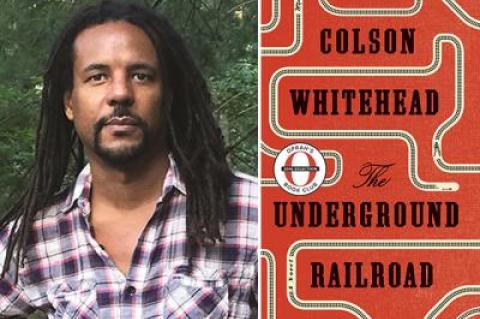 Slipping Chains and Time
Slipping Chains and TimeColson Whitehead is too smart a writer to make "The Underground Railroad" simply another litany of white atrocities and triumphant freedom; he finds a new way to tell the story.
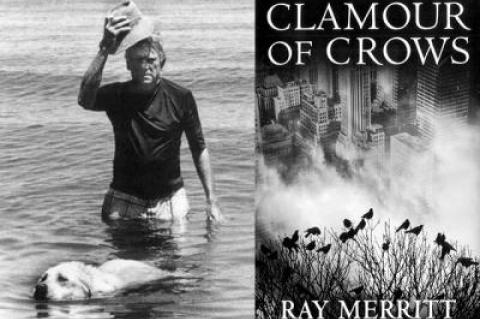 Masters of the Dark Arts
Masters of the Dark ArtsThere may be a murder at the heart of Ray Merritt’s first novel, “Clamour of Crows,” but what’s really of interest is the author’s exploration of the culture of a Wall Street law firm.
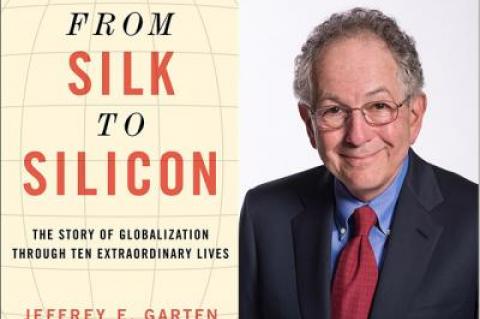 Portraits in Globalism
Portraits in GlobalismListening to the Bernie Sanders supporters, I heard Buffalo Springfield's refrain in my head, "There's something happening here. What it is ain't exactly clear."
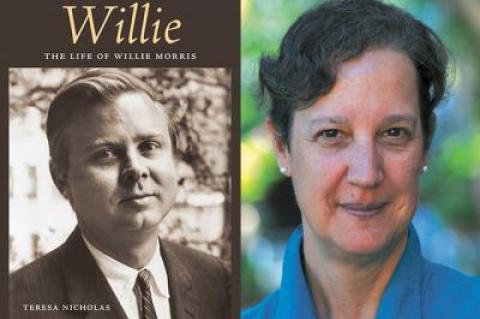 South Toward Home
South Toward HomeIn the summer of 1979 I was introduced to Willie Morris at Bobby Van’s, then a wood-paneled chophouse that bore no resemblance to the chic local outpost it is today.
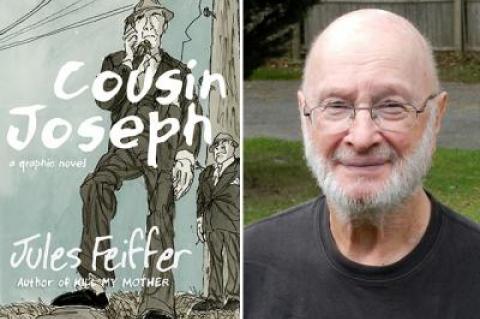 Bare-Knuckle Ballet
Bare-Knuckle Ballet"Cousin Joseph" is the second installment of Jules Feiffer's graphic novel trilogy, a lively (and decidedly deadly) film noir homage that follows on the hard-boiled gumshoe heels of his 2014 New York Times best seller, "Kill My Mother."
Remember the Poetry Marathon? Held each summer at the Marine Museum on Bluff Road in Amagansett for years before it quietly left the scene? Well, it’s back.
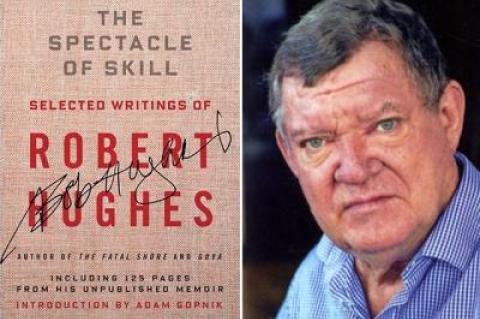 Gadfly of the Art World
Gadfly of the Art WorldThe chicanery that prevailed in the unregulated art market of the late 20th century provoked no harsher critic than Robert Hughes. This outspoken art critic left his native Australia for Italy in 1964, landed in London in 1965, and settled in New York in 1970, the year of the painter Mark Rothko’s suicide.
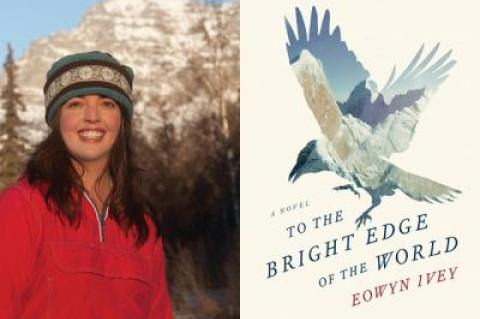 ‘Oh, Fearsome Land’
‘Oh, Fearsome Land’Eowyn Ivey’s second novel, “To the Bright Edge of the World,” is at once an adventure tale, an epistolary love story, and a rendering of the bird life of the Great Northwest.
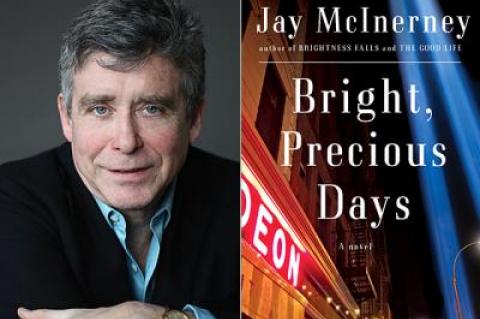 Once More Unto the Loft
Once More Unto the LoftIf you lived in New York City in the latter 1980s and early 1990s, as I did, chances are you had strong feelings regarding the writer Jay McInerney. Some of these feelings, maybe you can now admit, involved jealousy.
 Trump: An Impartial Appraisal of the Nominee
Trump: An Impartial Appraisal of the NomineeTed Rall, a political cartoonist known for his intensely critical view of the American government, will return to the Amagansett Library to discuss his latest work, "Trump," on Aug. 4.
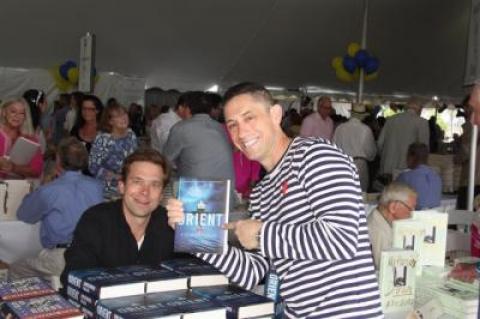 Author! Author! (and Then Some) for the Library
Author! Author! (and Then Some) for the LibraryThis time it’s in the estate section. Authors Night, that is, the fund-raiser for the East Hampton Library, which this year will be held at 4 Maidstone Lane in the village, not far from the Maidstone Club, calling together 100-plus writers for a mass book signing and sale, gab fest, and meet-and-greet starting at 5 p.m. on Aug. 13.
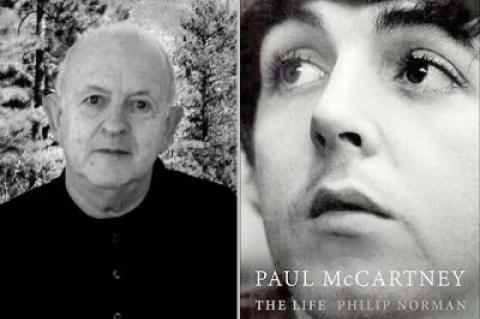 Paul McCartney: The 800 Pages
Paul McCartney: The 800 PagesFifty-two years after they conquered America and 46 after they played their last song together, the Beatles remain a booming industry, not to mention a cultural force that forever changed popular music, fashion, and attitudes. Here's the latest biography . . .
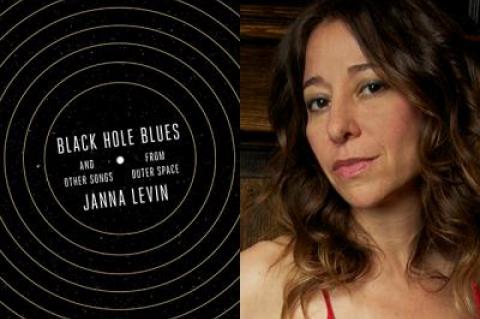 Glints of Silver in the Universe
Glints of Silver in the Universe“Black Hole Blues” is the engaging story of people who bet their reputations and their legacies on a science and technology long shot — the detection of gravitational waves, predicted by Albert Einstein in 1916.
You might think that “literary death match” refers to any Tuesday morning staff meeting in the beleaguered publishing industry, but in fact it’s a competitive reading, poetry slam-style, and it’s coming to Stony Brook Southampton’s Avram Theater.
Neal Gabler has turned his culture critic’s sights on none other than Barbra Streisand for his new book, and he’ll discuss it on July 9 at 6 p.m. to lead off the Amagansett Library’s free summer reading series, Authors After Hours.
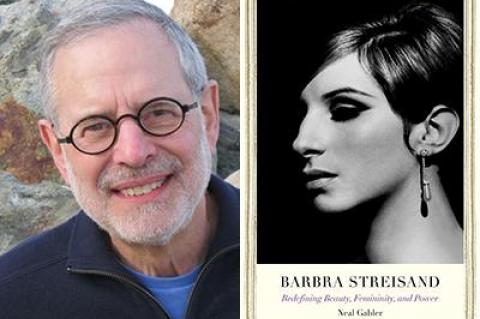 How Barbra Changed Our World?
How Barbra Changed Our World?The New York City Board of Education, in its infinite wisdom circa 1955, divided a long-established school district in the Crown Heights section of Brooklyn to create banjo-shaped Wingate High. Had it not, I would have gone to legendary Erasmus Hall and been a classmate of the soon-to-be famous Barbra Streisand. But would I have noticed?
